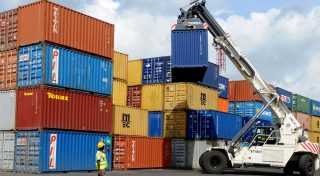Just over a month after Nigeria’s e-Logistics start-up, Kobo360, announced its expansion into Kenya, a competitor in the eastern African nation has followed suit, moving in the other direction.
Digital logistics firm, Lori, yesterday disclosed that it has entered Nigeria – Africa’s biggest economy and most populous nation – after successfully completing a pilot in the country over the past 10 months.
Prior to the official announcement on the Nigerian expansion, the company had worked with some of the country’s major cargo companies such as Olam International, Honeywell Flour Mills and Flour Mills of Nigeria.
Launched in 2016, Lori is said to be the largest e-Logistics service provider in Kenya and East Africa at large. The startup seamlessly connects cargo owners to transport in frontier markets such as Nigeria, where businesses face congestion challenges and a shortage of transport options.
“Lori is at the forefront of revolutionizing cargo transport across Africa from the ground up,” said Uche Ogboi, the company’s Chief Operating Officer. “Our mission in Nigeria is to create a more efficient logistics experience for cargo owners who are burdened with the task of moving their goods across the country.”
Across Africa, Lori’s mission is to solve the problem of the high cost of goods where in certain countries, up to 75 percent of the cost of a product is attributed to logistics, compared to only 6 percent in the United States.
Lori also aims to cement its mark across the continent and the company had in July announced the appointment of new global leadership to drive its African expansion efforts.
The expansion into Nigeria presents a huge opportunity for Lori, however, the journey will most likely not be a stroll in the park, especially in Africa’s largest single market, which is the base of regional rivals, Kobo360. But both firms are central to the ongoing revolution in Africa’s logistics space.
A major player in the Nigerian logistics sector since launching in December 2017, Kobo360 is rapidly expanding across the continent. Earlier this year, the startup launched in Uganda as well as in Togo and Ghana, home to West Africa’s leading container ports.
Announcing its entry into Kenya – Lori’s home country – in a press release issued late August, the Lagos-based startup said it has been in beta operation in Kenya for five months, with access to over 3,000 trucks and truck owners.
Kobo360 is delivering huge values and positive experiences to its Kenyan clients, including major logistics partners such as Bidco Africa, Union Logistics Limited, and Intraspeed ARCPRO Kenya LTD, it said in the statement.
With the presence in Nairobi, Kobo360 is well-positioned to grow its reach in East Africa, aided by the Port of Mombasa – the largest and busiest in the region – which serves as a gateway to neighboring countries Uganda, Rwanda, Burundi, DRC, and Southern Sudan.
“Our presence in Kenya means we are in a position to leverage on the nation’s high technology adoption rate in order to fuel logistics in East Africa and beyond,” said Kagure Wamunyu, Kobo360’s CEO for the African region. “We anticipate to strengthen our links across this region.”
Having raised over $35 million since its founding and backed by American financial services multinational, Goldman Sachs, Kobo’s mission is to build the Global Logistics Operating System (G-LOS) to ensure fast and low-cost movement of goods for trade and commerce across Africa and Emerging Markets.
Meanwhile, Lori is working to facilitate and connect technology innovation, smart policy and government partnership, as well as seamless operations to continue to lower the cost of goods across Africa, it said in a release.
As both tech logistics platforms battle it out on who gets the bigger share of Africa’s logistics market, currently estimated at $150 billion, the fierce competition holds an enormous potential to revolutionize the supply chain ecosystem on the continent.
The combined disruption by Kobo360 and Lori eliminates customer pain points along the cargo journey with the aid of new technologies, and supports thousands of freight companies which require a safe, reliable and cost-effective delivery of their goods to cargo recipients across the region.








